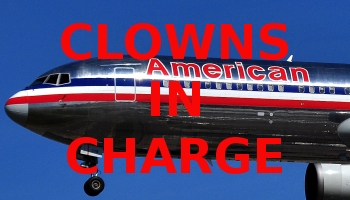Boeing’s problems are only the tip of the iceberg

As noted by the Spirit of Christmas Present in Dickens’ The Christmas
Carol, ‘This boy is ignorance, this girl is want. Beware them both,
but most of all beware this boy.’
Since the beginning of this year, following the near disaster when a door of a Boeing 737-Max airline blew off during the Alaska Airlines flight, the media has been obsessed with reporting every single subsequent Boeing airplane incident as attributed to bad management and quality control at Boeing.
The problem with this shallow reporting is that it fails entirely in recognizing the real depth of the problem.
First, in most of the incidents reported, the planes involved were not recent purchases from Boeing, but had been owned by the airlines for years, sometimes decades. Thus, any maintenance issues, such as a wheel falling off after take-off or a landing gear collapsing on landing or the sudden failure of an Airbus plane’s hydraulic system, are not Boeing’s fault, but the fault of the airline the plane belongs to. In the case of these particular incidents, that airline was United, and in every case, the failure was with its maintenance department, not Boeing’s bad management and poor quality control.
A similar string of incidents has also occurred at American Airlines, involving both Boeing and Airbus airplanes. With both United and American, evidence suggests that the quality of its maintenance staff has likely declined significantly since 2020, when both companies decided to abopt Diversity, Equity, and Inclusion (DEI) hiring practices, which made skin color and sex the most important qualification in hiring, rather than talent, skill, experience, or knowledge.
It is important for readers to recognize this fact when they see new stories about a Boeing plane forced to make an emergency landing, such as the story today about a United Airlines’ Boeing 787. It apparently had a cracked windshield, requiring an unscheduled landing in Chicago. The article at the link focuses a great deal on Boeing, but the focus should instead be on United Airlines, not the airplane maker, since it is United’s responsibility to keep its fleet flightworthy. When an airline fails to do so, future customers should take note, and consider other options when they need to fly.
In other words, you shouldn’t avoid flying on a Boeing plane, you should avoid flying on airlines that maintain their airplanes badly.
Having said this, I don’t want my readers to think I am trying to let Boeing off the hook. Far from it. » Read more


